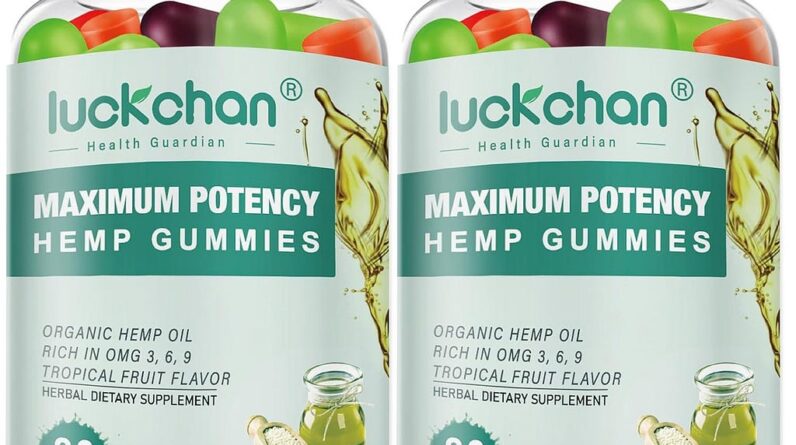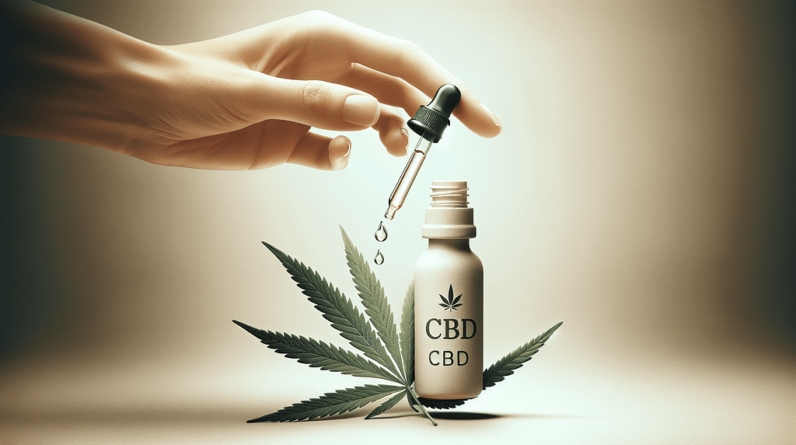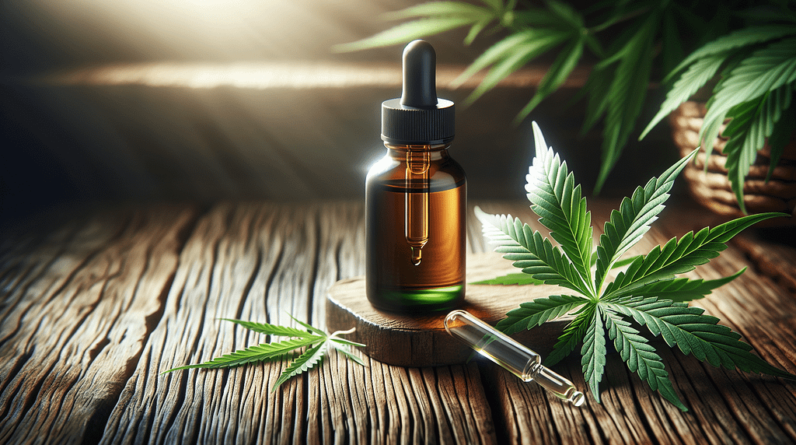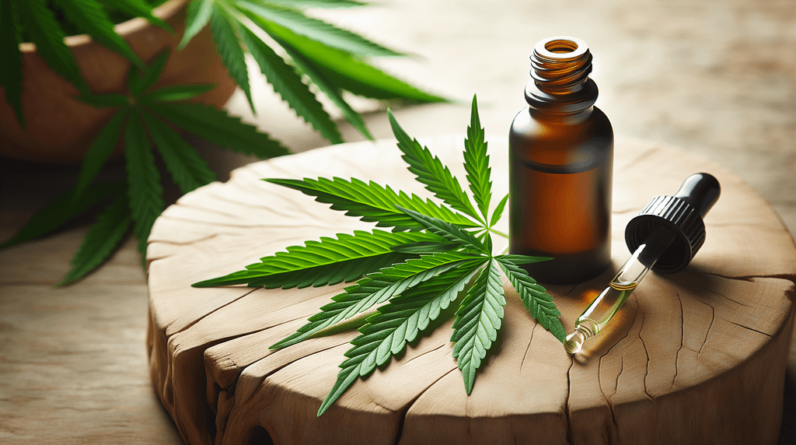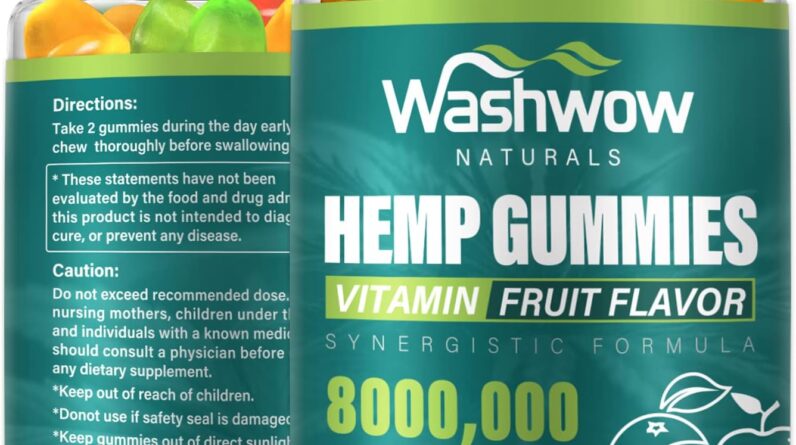As an Amazon Associate I earn from qualifying purchases.
Explore Full-Spectrum vs. Isolate CBD! Learn about their composition, benefits, and differences to choose the best CBD for your needs. Dive into cannabinoids and the entourage effect!
Understanding Full-Spectrum vs. Isolate CBD: What’s the Difference?
CBD, or cannabidiol, has taken the health world by storm. Whether you’re dealing with anxiety, pain, or just looking to improve your overall wellness, you’ve likely stumbled upon CBD oil as a potential remedy. However, as you embark on your journey into the world of CBD, you’ll come across two prevalent types: Full-Spectrum CBD and Isolate CBD. Understanding the difference between these two can make a significant impact on your CBD experience. Let’s dive into the details!
What is CBD?
CBD, short for cannabidiol, is a naturally occurring compound found in the cannabis plant. It’s one of over a hundred cannabinoids found in hemp plants. Unlike its cousin, THC (tetrahydrocannabinol), CBD does not produce a high. Instead, it’s celebrated for its potential therapeutic benefits, which range from relieving chronic pain to reducing anxiety.
The Endocannabinoid System
Before diving deeper, it’s essential to understand how CBD interacts with your body. The endocannabinoid system (ECS) is a complex network of receptors and enzymes that play a crucial role in maintaining homeostasis — the body’s balance of internal conditions. By influencing the ECS, CBD can help regulate various functions like mood, sleep, and pain perception.
https://medium.com/media/8cacc8c740b67c437da997c5ee65afa0/href
What is Full-Spectrum CBD?
Definition
Full-Spectrum CBD includes all of the cannabinoids, terpenes, and other natural compounds found in the cannabis plant. This means it contains CBD along with traces of THC, CBG, CBN, and others, each contributing to the “entourage effect.”
The Entourage Effect
The entourage effect is the synergistic interaction between cannabinoids and terpenes, enhancing the therapeutic benefits of the plant. By consuming full-spectrum CBD, you’re getting a broader range of benefits compared to isolated compounds. This effect can magnify the overall therapeutic experience, making it more effective for some individuals.
Composition
Full-spectrum CBD oil typically includes:
Cannabidiol (CBD): The primary active ingredient.Tetrahydrocannabinol (THC): Present in trace amounts (usually less than 0.3% to comply with legal standards).Other Cannabinoids: Such as CBN, CBC, and CBG.Terpenes: Aromatic compounds that may enhance efficacy and flavor.Flavonoids: Offering additional antioxidant properties.
Benefits
Using Full-Spectrum CBD can be particularly beneficial if:
You’re seeking a more comprehensive wellness approach.You’re looking to take advantage of the entourage effect.You want to experience the full range of the plant’s natural compounds.
What is Isolate CBD?
Definition
CBD Isolate is the purest form of CBD, isolated from all other compounds present in the cannabis plant. It is typically in crystal or powder form and contains no THC, terpenes, or other cannabinoids.
Production Process
Creating CBD isolate involves an extensive extraction process. First, CBD is extracted from the hemp plant and then refined down to remove all other cannabinoids and plant materials. The result is a fine, white powder that is at least 99% pure CBD.
Composition
CBD isolate contains:
Pure Cannabidiol (CBD): It’s stripped of all other plant compounds, ensuring it’s free from THC.
Benefits
You might prefer CBD isolate if:
You’re sensitive to THC or prefer to avoid it altogether.You’re subject to regular drug testing.You desire precise control over how much CBD you’re consuming.You want to avoid potential interactions with other plant compounds.
The Core Differences Between Full-Spectrum and Isolate CBD
Cannabinoid Profile
One of the main differences lies in their cannabinoid profiles. Full-spectrum products contain multiple cannabinoids, including THC (in trace amounts), while CBD isolate contains only pure CBD. The presence of multiple cannabinoids in full-spectrum CBD may offer broader therapeutic benefits due to the entourage effect, which is absent in CBD isolate.
Efficacy
Thanks to the entourage effect, full-spectrum CBD is often considered more effective for a wider range of conditions than CBD isolate. The synergy between the cannabinoids and terpenes enhances their therapeutic benefits. However, for individuals specifically looking for the effects of CBD alone, isolates can be highly effective and targeted.
Sensory Experience
Full-spectrum CBD contains natural terpenes, which contribute to a rich sensory experience, including distinct flavors and aromas. CBD isolate, on the other hand, is odorless and tasteless, making it easier to incorporate into foods, beverages, or sublingual applications without altering their taste.
Legal Considerations
While both full-spectrum and isolate CBD are derived from hemp, making them legal under federal law in many areas, full-spectrum contains trace amounts of THC. It’s important to consider local regulations and potential drug tests when choosing your CBD product.
Price
Typically, CBD isolate is more expensive per milligram of CBD since it undergoes more extensive processing to remove all other compounds. However, the cost can vary based on the brand, extraction method, and the purity of the product.
How to Choose the Right CBD for You
Identify Your Goals
Understanding what you hope to achieve with CBD is the first step in making an informed decision. Are you seeking overall wellness, targeted relief, or symptoms like anxiety and chronic pain? Your goals will guide you towards the most effective product type.
Understand Your Sensitivity to THC
If you’re highly sensitive to THC or are subjected to regular drug testing, CBD isolate might be a better fit for you. The trace amounts of THC in full-spectrum products, while generally non-psychoactive, can accumulate in your body and potentially influence drug test results.
Consider Your Lifestyle
Think about your lifestyle and how CBD fits into it. If you prefer incorporating CBD into your daily meals, tasteless and odorless CBD isolate might be more convenient. If you enjoy the natural taste and aroma of cannabis, full-spectrum could be a better match.
Consult a Medical Professional
It’s always a good idea to consult with a healthcare provider before beginning any new supplement regimen, especially if you have pre-existing conditions or are taking other medications. They can provide personalized advice based on your specific health profile.
Methods of Consumption
Sublingual Oils and Tinctures
Both full-spectrum and isolate CBD products are available in oil and tincture forms. These are typically taken sublingually (under the tongue) for faster absorption. The difference in these products will primarily be in the taste and the breadth of effects.
Edibles
CBD can be infused into a variety of edible products. Full-spectrum edibles may provide a more robust experience due to the presence of other cannabinoids and terpenes, while isolate edibles offer a cleaner, more predictable dose of pure CBD.
Topicals
Topical applications, such as creams or balms, are great for localized relief. Both full-spectrum and isolate CBD can be used in topicals; however, full-spectrum might offer enhanced benefits for conditions like skin irritations and inflammation, owing to the entourage effect.
Vaping
If you prefer fast-acting effects, vaping might be an appealing option. Full-spectrum vape products will give you a more nuanced experience, whereas isolate vapes provide pure CBD benefits without any additional cannabinoids.
Potential Side Effects and Safety
Common Side Effects
While CBD is generally considered safe, some people may experience side effects, such as:
FatigueDiarrheaChanges in appetite or weight
Interaction with Medications
CBD can interact with certain medications. It’s essential to consult your healthcare provider if you’re on prescription drugs to avoid potential interactions, especially those metabolized by the liver.
Quality and Purity Concerns
Given the booming popularity of CBD, ensuring the quality and purity of your product is crucial. Look for third-party lab testing and opt for reputable brands. Full-spectrum products should indicate their THC content and purity, while isolates should be at least 99% pure.
Regulatory Landscape
Federal and State Laws
The legality of CBD can vary depending on your location. Federally, hemp-derived CBD products containing less than 0.3% THC are legal in the United States. However, state laws can differ, sometimes significantly, from federal regulations, so it’s important to know your local laws.
International Considerations
If you’re traveling internationally, be aware that CBD laws can vary widely from country to country. Some nations have strict regulations on any form of CBD, whether it’s isolate or full-spectrum. Always research your destination’s legal stance on CBD before traveling with it.
Consumer Tips
Read Labels Carefully
Always read product labels carefully to understand what exactly you’re consuming. Look for the type of CBD, its concentration, and any additional ingredients.
Third-party Testing
Reliable brands will offer third-party lab results to confirm the product’s purity and potency. These lab results are crucial for verifying the absence of harmful contaminants and the accuracy of the CBD content.
Start Low, Go Slow
If you’re new to CBD, start with a lower dose and gradually increase it. This approach allows you to gauge how your body reacts to CBD and to find the optimal dose for your needs.
Store Properly
Proper storage is essential for maintaining the potency and quality of your CBD products. Keep them in a cool, dark place, away from direct sunlight and extreme temperatures.
Real User Experiences
Testimonials for Full-Spectrum CBD
Many users have found full-spectrum CBD to be incredibly beneficial. John, a 45-year-old athlete, shared: “Full-spectrum CBD has been a game-changer for my post-workout recovery. The aches and pains are significantly reduced, and I feel an overall sense of wellness.”
Testimonials for CBD Isolate
Those who prefer isolate CBD also have positive stories. Sarah, a 30-year-old teacher, noted: “As someone who gets drug tested regularly, CBD isolate has been amazing. It’s my go-to for stress relief, and I never have to worry about THC showing up.”
Conclusion
Understanding the differences between full-spectrum and isolate CBD is essential in making an informed choice that best suits your needs. Full-spectrum CBD offers a holistic approach with the added benefit of the entourage effect, while CBD isolate provides a pure, targeted form of cannabidiol, free from THC. Both types have unique advantages, so your decision will depend on your specific needs and circumstances.
Feel free to clap if you found this article helpful, leave a comment if you have any questions or experiences to share, and consider subscribing to our Medium newsletter for more updates and in-depth articles like this. Your health and wellness journey is important, and we’re here to support you every step of the way!
Disclosure: This story incorporates AI assistance for content creation.
Amazon and the Amazon logo are trademarks of Amazon.com, Inc, or its affiliates.

